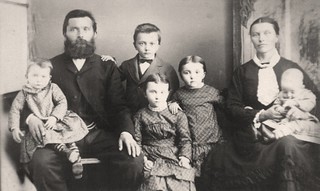I was invited to share my views on political issues relating to marriage and was pointed to DefendMarriage.org as a reference point. I think the issues relating to marriage and the politics surrounding marriage (gay rights and abortion rights are listed in the invitation and states rights are a part of the political discussion as well) really illustrate that there is more to this issue than simply answering the question of what defines “marriage” in our society. The following statement on traditional marriage from defendmarriage.org really outlines the socially conservative position on the surface issue of defining marriage:
Marriage between man and woman is the time-honored foundation of the institution of the family. This legally recognized and protected union is intended to be life-long, preceded by sexual abstinence and followed by absolute fidelity and loyalty. Such marriage offers security, benefits, and joys that no other relationship can, including children born and nurtured in a home of love and total commitment. Marriage is the institution universally sanctioned by civilization to ensure that children receive a full measure of parental love, resources and attention.
I fully agree with that definition of what marriage is. The question that I keep asking myself in order to define the parameters of the deeper issues is why, and in what ways should the law “recognize and protect” marriage. If we return to a proper protection of individual rights many of the reasons used to justify stretching that legal definition of marriage evaporate. If two people engage in a homosexual lifestyle and establish a loving and committed relationship then the government has no business interfering with hospital visitation rights etc. Our society gains nothing by infringing upon those individual rights.
On other questions, such as tax breaks and insurance benefits there should be no issue. Individuals can will their property to anyone regardless of family connection and the government should never have a primary right of ownership that is functionally implied through inheritance taxes. The same holds true with tax breaks for married couples – there should be no need for tax breaks because we should not have an income tax (which again implies that the government owns the money and simply allows individuals to a portion of what they contribute to the GNP). If we had no income tax there would be no tax benefit for being married.
As for health care benefits for families, family insurance policies would essentially be a type of small-group policy. Insurance companies could offer policies to match any kind of group whose business they want.
With regard to adoption, that is a social service that should not be run by the state. Instead, adoption should be a matter that is resolved between willing biological parents and individuals that are willing and to whom the natural parents chose to transfer the rights and responsibilities of parenthood. No need to worry about biological children because homosexual couples have voluntarily chosen a lifestyle that does not produce biological children. (Even those who argue that homosexuality is an inborn identity must recognize that those individuals may choose not to engage in the lifestyle.)
By removing those issues from the arsenal of those who agitate for recognition of gay marriage, the discussion would be reduced to the core issue of what constitutes marriage. That issue is not primarily a political issue, it is a cultural/theological issue. The government is only responsible to ensure that individuals on both sides of the issue do not have their rights trampled by others.


